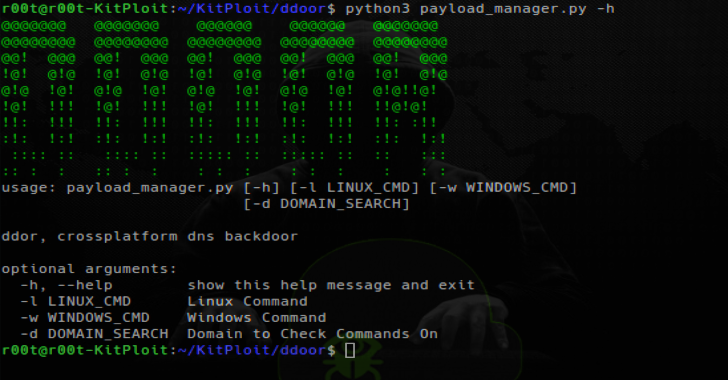DDoor is a cross platform backdoor using dns txt records. It is a cross platform light weight backdoor that uses txt records to execute commands on infected machines.
Features
- Allows a single txt record to have seperate commands for both linux and windows machines
- List of around 10 public DNS servers that it randomly chooses from
- Unpredictable call back times
- Encrypts txt record using xor with custom password
- Anti-Debugging, if ptrace is detected as being attached to the process it will exit.
- Process Name/Thread names are cloaked, a fake name overwrites all of the system arguments and file name to make it seem like a legitimate program.
- Automatically Daemonizes
- Tries to set GUID/UID to 0 (root)
- Hides Console Window
- Stub Size of around 20kb
To install the dependencies needed for the python generation script run.
pip3 install -r requirements.txt
Make sure to edit config.h and replace the provided domain with yours, you can change the fake name as well as the password.
Run the compile.sh script, this will create a file called binary in the bin folder.
This project was built using VS 2019, if you open the sln file using VS2019 select the release build and build it.
Also Read – Vulnx : Intelligent Bot Auto Shell Injector That Detect Vulnerabilities In Multiple Types Of CMS
Run payload_manager.py with python3 to create a hex encoded payload, then update or create a txt record for your domain, make sure that the TTL is set to 300 seconds!!!
$ ./payload_manager.py -h
usage: payload_manager.py [-h] [-l LINUX_CMD] [-w WINDOWS_CMD]
[-d DOMAIN_SEARCH]
ddor, crossplatform dns backdoor
optional arguments:
-h, –help show this help message and exit
-l LINUX_CMD Linux Command
-w WINDOWS_CMD Windows Command
-d DOMAIN_SEARCH Domain to Check Commands On

















